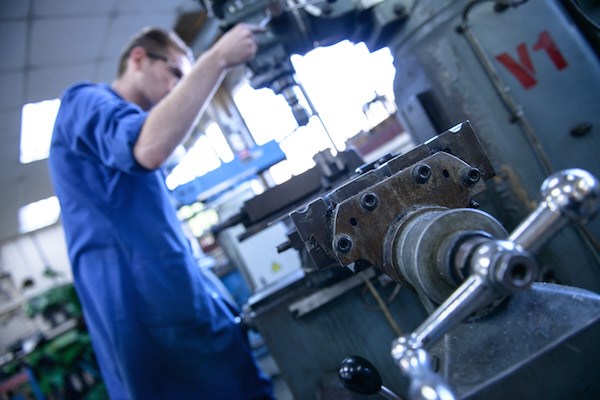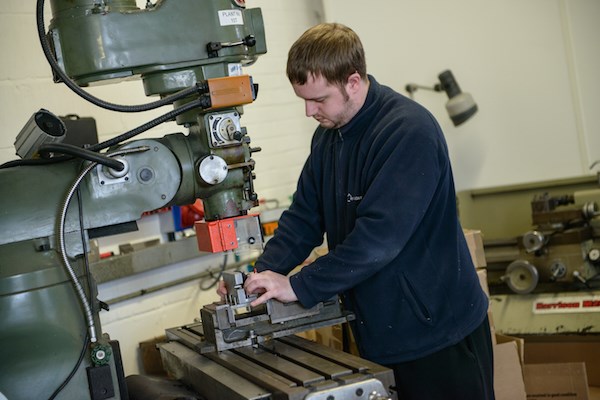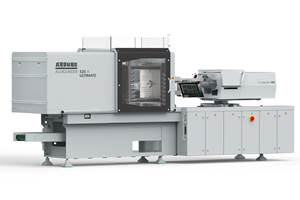Pentagon Plastics Discusses UK Reshoring, Impact of Brexit
Injection molder Pentagon Plastics provides an update on the reshoring movement in the UK and what role Brexit will play going forward.

Injection molder Pentagon Plastics provides an update on the reshoring movement in the UK and what role Brexit will play going forward.
In 2015, I wrote about how the UK is also experiencing a manufacturing resurgence and focused on Pentagon Plastics (Horsham, West Sussex, UK), a family-run plastics injection molding company, which said that many UK manufacturers that sent products to China now want those same products made in the UK.
So 18 months later, how has this evolved and what will be the impact of Brexit?
Well, Pentagon Plastics says at least thus far it has continued to experience a resurgence in reshoring.
Paul Edwards, managing director, highlights that companies looking to bring their manufacturing back to the UK have faced challenges overseas. For example, customers dealing with inserts that don’t fit UK bolster sets, as well as issues with not owning the complete tool. Such complexity with overseas tooling is putting UK manufacturing back on the map and it’s seen as beneficial to “keep it local”.
“We’ve discussed such issues with a UK electronics company,” Edwards says. “They originally chose an overseas manufacturer due to price and lead time, despite language barriers, inflexibility and late delivery to the approval stage. After a difficult project, approved by the Financial Director against the recommendation of the chief engineer, they have taken a company decision to manufacture all future tools in the UK. This puts another feather in the cap of UK manufacturing.”
Impact of Brexit
Pentagon Plastics says it’s currently difficult to determine the impact it leaving the EU will have on Britain’s reshoring movement. At present, Bangladesh and Pakistan are tipped to become manufacturing forces by the BMI as Far East prices are rising, but there may yet be further growth in UK reshoring, according to Pentagon.
The reason for this is two-fold; the landscape is changing and there is an understanding that customers want more control over the manufacturing process and want to see products transformed from a CAD design to a real functioning part first hand. This means customers need to be within an appropriate travelling distance. Whilst travel always improves, language barriers and cultural differences still exist and can draw customers back to the UK when combined with a comprehensive service, modern equipment and skilled staff.
Secondly, if the UK can gain free access to the single market it can only be a good thing. The EU is the UK’s single most important trading partner for plastic materials and products, and plastics are one of the UK’s top 10 exports as reported by the British Plastics Federation. The UK is however reliant on imports: for example, in 2015 £1.8bn of raw materials were exported to the EU and £3.8bn imported.
Business Investment
The UK manufacturing sector is also experiencing a skills shortage like the one in the U.S. and Pentagon Plastics believes that it “is imperative that existing EU workers remain in the plastics sector. The UK needs to maintain access to international skills in the future, while looking inward at developing home grown staff.” This can be achieved through awareness in schools about the opportunities in manufacturing and investments in training existing staff.
Pentagon Plastics:
If the UK uses Brexit to help develop 大象传媒es and invest to support the plastics industry through grants and match funding initiatives, it will allow UK manufacturers to become more competitive on price and lead time, facilitating reshoring opportunities. The Far East and China in particular are going through change, and we’re in the position to capitalize. To do this we need to sell our services to those placing new work and most importantly, deliver on our promises.
Plastics companies in the UK are working hard to look at investment into plants and equipment; recycling is also high on the agenda.
Paul Edwards adds, “Although price obviously plays a part in being competitive in the UK market, service is just as, if not more, important, giving customers confidence in your ability to supply, be responsive and visible in all key elements. Talking the talk is important but we also have to back it up and achieve the promises we make. Our facilities need to be clean and the work flow fluid through the manufacturing process. In essence, transparency and honesty are key as well as the investment in skills and equipment.”
Pentagon Plastics believes that the future may be bright for UK manufacturing and reshoring, as long as the appropriate investment is made available to companies to ensure their skillsets and assets continue to be competitive and grow in a global sense.

Related Content
Kurz Opens New Plant in Vietnam
The maker of decorative thin films invested 37 million euros in the new 60,000-m2 plant in Quy Nh啤n, which joins regional production facilities in China and Malaysia.
Read MoreBreaking News From NPE2024
Here is a firsthand report of news in injection molding, extrusion, blow molding and recycling not previously covered.
Read MoreIn-Mold Labeling Applied to Medical
In collaboration with multiple partners, Arburg will showcase IML for centrifuge tubes at Fakuma 2023, eliminating printing or other downstream steps.
Read MoreSlimmer All-Electric Press Debuts
NPE2024: A slimmed-down version of Engel’s all-electric, e-mac injection molding machine is among eight displays, which also include LSR micromolding, quick mold changes and a cube mold.
Read MoreRead Next
Beyond Prototypes: 8 Ways the Plastics Industry Is Using 3D Printing
Plastics processors are finding applications for 3D printing around the plant and across the supply chain. Here are 8 examples to look for at NPE2024.
Read MorePeople 4.0 – How to Get Buy-In from Your Staff for Industry 4.0 Systems
Implementing a production monitoring system as the foundation of a ‘smart factory’ is about integrating people with new technology as much as it is about integrating machines and computers. Here are tips from a company that has gone through the process.
Read MoreMaking the Circular Economy a Reality
Driven by brand owner demands and new worldwide legislation, the entire supply chain is working toward the shift to circularity, with some evidence the circular economy has already begun.
Read More















